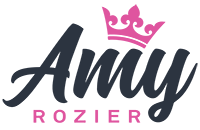WHY USE A REALTOR®?
Is it necessary to buy a house through a REALTOR®? The answer is no, however, why would you undertake this process without the help of an expert?
A REALTOR’s® expert knowledge of neighbourhoods, zoning, transportation, schools, taxes, community services and future development plans, are essential when selecting the right property that fits your needs. A REALTOR® will also advise you on financing options and will recommend other professionals needed to complete the sale. You will be dealing with sellers and their agents, so you want to make sure you have someone who will represent and promote your interests.
An experienced REALTOR® understands economic trends and the market, knows the area where you want to buy, and perhaps most importantly, listens to you.
As your REALTOR® and Buyer’s Agent, I will:
- Help you determine the type of property you need and can afford.
- Advise you about market conditions and provide information about the community.
- Explain the forms used in a real estate transaction and help you prepare an offer to purchase.
- Present your offer to the seller and negotiate on your behalf.
- Recommend other professionals, such as a certified home inspector or lawyer/notary.
- Be with you every step of the way. My service continues even after your purchase.
WHAT ARE THE NEXT STEPS?
Make A “Wish List”
Before you begin looking for a home, sit down and make a detailed “wish list” of your needs and your wants. You may be surprised what you come up with when putting pen to paper. Together we can review this list and prioritize some areas and add input. When making your list, consider the following: location, schools, proximity to shopping areas, parks and public transportation. Depending on your budget, you may also need to consider whether you want a detached home or a townhouse or condominium. Each has their pros and cons, which we can discuss and see which is a better fit for you for your short-term and long-term plans.
Determine your Budget
Before you start looking for a home, you and your Realtor® need to determine what is affordable for you. Although the primary home buying expenses are the down payment, mortgage and the completion costs, it is also important to factor in other “life expenses” such as vacations, emergency funds, childcare and vehicle maintenance in your monthly/annual budget. Current interest rates will also affect the amount you can afford. Be sure to talk to your Realtor® about the effect that changing mortgage rates can have throughout the lifespan of your mortgage, as well as various home-buyer incentive programs that can assist you with your purchase now.
Down Payment
Conventional mortgages typically require that you pay at least 20% of the purchase price as a down payment. Exceptions to this include the Canada Mortgage and Housing Corporation (CMHC) 5% down payment program that allows you to obtain a high-ratio mortgage, where you can receive up to 95% financing. Although your down payment cannot be borrowed, gifts from friends or relatives are permitted. Lenders will require that such gifts are stated in writing. Additionally, you may borrow up to $20,000 from your RRSP if you are eligible.
Mortgage
Most buyers need to borrow a portion of the money from a bank or other lending institution. Ask you Realtor® to calculate how much you are eligible to borrow based on your income and level of debt, and once you have an idea of what you can afford, you then need to get pre-approved by a bank or mortgage broker. Pre-approval of a mortgage is when your lender has reviewed all your financial information and has determined the maximum amount of money you can borrow. You can contact banks and credit unions directly, or work with an established mortgage broker. A mortgage broker will help do a lot of the leg work for you to find you the best available rates, and best of all, the lender pays the mortgage broker for this work.
Get Pre-Approved
There are many advantages being pre-approved, including: You can write a more attractive offer to a Seller because the seller knows you’re more likely to receive mortgage approval; You can write a more attractive offer to a Seller because the seller knows you’re more likely to receive mortgage approval; You don’t waste time looking at properties you can’t afford; Your rate is “locked-in”. This means that you don’t have to worry about rising interest rates while you shop since the lender will guarantee the current interest rate for up to 90 days; You save time when you apply for your loan because you have already organized your paperwork.
Don’t forget! Banks and financial institutions are competing for your business, and most lenders will reduce their posted interest rate if you ask them to, so don’t be afraid to negotiate.
Once you have selected your lender, you will need to provide the following:
- Personal information (ie. such as number of dependents and marital status)
- Details of your assets (i.e.- a car, other property) and other liabilities;
- Employment details, including a letter from your employer verifying your income;
- Banking and investment information and a credit check with Transunion or Equifax
Once your application is complete, you will know how much you can borrow and you will be ready to start searching for a home.
Completion and Other Costs
Additional costs of buying a home include mortgage insurance, taxes, legal fees, house insurance, inspection reports, appraisal and survey fees. If you are a first time homebuyer and a Canadian Resident, you may be exempt from the Property Transfer Tax depending on the value of your purchase.
